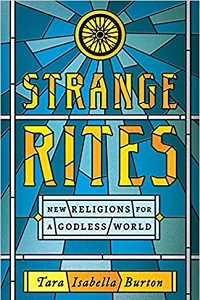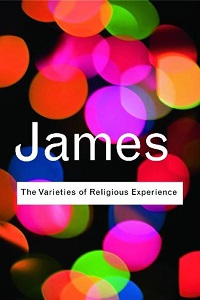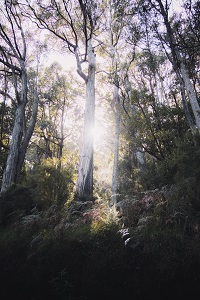How will these resources help you?
In Religious Studies, the topic of ‘religious experience’ is often studied as an argument for the existence of God, alongside the teleological and cosmological arguments. However, with a focus on worldviews and religion it can be beneficial to explore religious experiences through a slightly different lens – not looking at whether they are convincing, but rather what effects they have on the lives of those who experience them and how these mysterious and transcendental episodes offer psychological (perhaps spiritual) benefits. Furthermore, when studying the future of religion – particularly in increasingly secular countries – these resources offer case studies that show that these feelings of being in the presence of something ‘greater’ are still being sought.
Introduction to ‘religious experience’

An inexplicable experience
by Jonathan West, published by The Guardian, (2008)
This is a short, useful article to use with students when introducing the topic of ‘religious experience’. The author grapples with his friend’s account of a religious experience and his own feelings of envy at the immense sense of peace he describes. Interesting points for students to discuss are: why it is important that the author views his friend as ‘rational’, the fact he was not being subject to any conversion attempt, and why he was inclined to attach a name of ‘God’ to the experience he had.
Religious experiences of the secular kind

Strange Rites: New Religions for a Godless World
by Tara Isabella Burton, published by PublicAffairs, (2020), 9781541762510
Burton delves into the world of belief and experience in the (seemingly) increasing secular society of the USA. She unpicks the complexity behind the so-called ‘rise of the nones’ (people without a religious affiliation), as 70 per cent of Americans still claim to believe in a higher power of some sort. Young Americans are quenching a deep-rooted desire for spiritual nourishment through an increasingly diverse set of communities – whether these are social justice groups, CrossFit or witchcraft. As Burton puts it, people are seeking the feelings of meaning, purpose and ritual through seeking 'spiritual paths driven by intuition, not institution'. This book would inform an interesting lesson discussion of what we really mean by ‘religious experience’ – does the numinous or inexpressible truly exist in a protest on climate change, or in the midst of the increasingly popular ultra-marathons? It would be useful to discuss these after studying William James' and Rudolf Otto’s classic definitions of religious experience.
The markers of a mystical experience

The Varieties of Religious Experience: A Study In Human Nature
by William James, published by Taylor & Francis, (2002), 9780415773829
James – 'the father of American psychology' – takes a pragmatic view of religious experiences and the benefits they can offer. This book comprises an edited version of his Gifford Lectures on natural theology, delivered at Edinburgh University in 1901 and 1902. James suggests that the effectiveness of an experience is more important than the authenticity or the method used to induce such a feeling (such as drugs or prayer). In the later lectures, he outlines the mystical nature of these experiences as being characterised by the ‘ineffable’ (not able to articulate the feeling in words) and ‘noetic’ (influencing our intellect or knowledge). Students can use these concepts to identify in various case studies what made the experience mystical in this way.
Audiovisual clip

Horizon - Religious experience and brain activity
published by BBC Two, (2003)
Modern health diagnosis posed as a theory behind the miracles described in the Bible, back before scientific discovery.
Further materials
21 Examples of Spiritual Experiences, published by Uplift Kids, (2023)
Visit this website
'Spiritual but not religious': inside America’s rapidly growing faith group by Tara Isabella Burton, published by Vox, (2017)
Read this article
The Neuroscience of Enlightenment by Andrew Newberg, published by Big Think, (2016)
Watch this video
Sunday Assembly London
Visit this website
Lucy Kentish is Head of Religious Studies and a South Coast Adviser for a MAT. She is part of a national leadership scheme for RE, has developed curriculums and resources for various schools and also works as an examiner for Eduqas.
Text © Lucy Kentish, 2023.
Text © Lucy Kentish, 2023.



